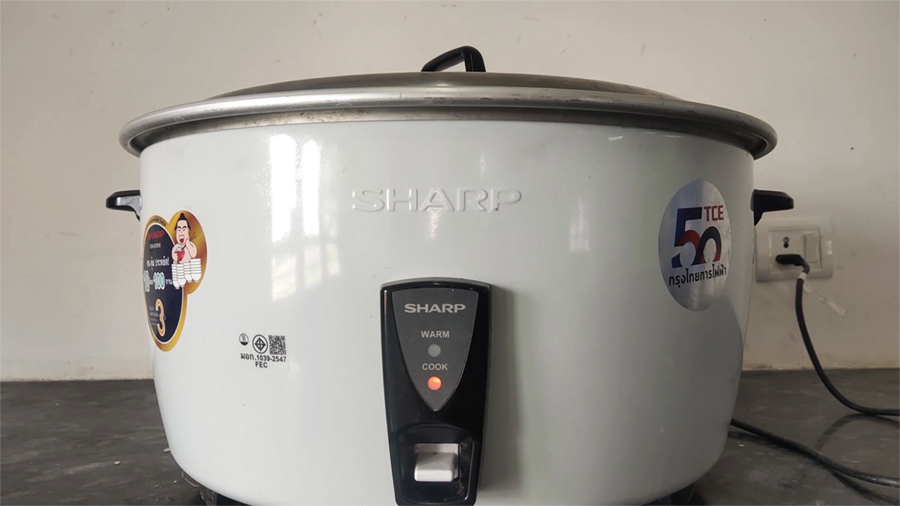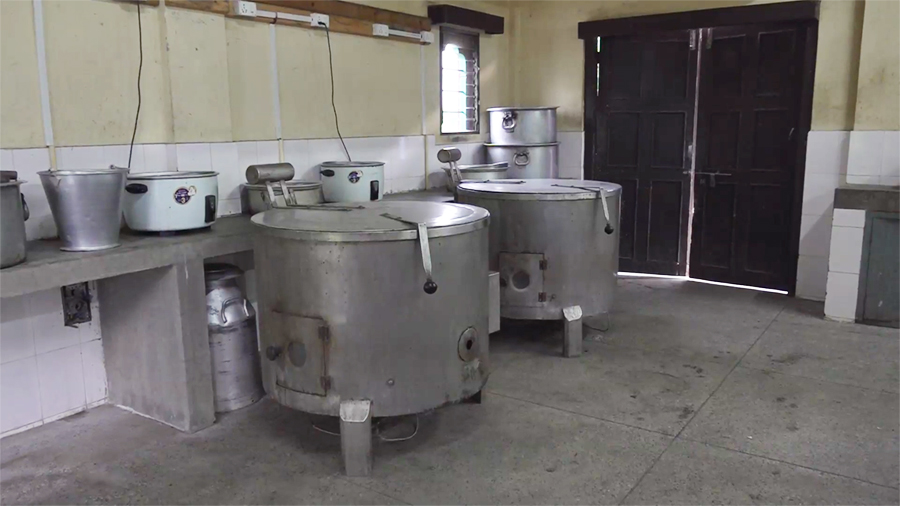
As part of the National School Feeding Programme, nearly 50 schools across the country are receiving heavy-duty electric cookers from the Ministry of Education and Skills Development. The project is being funded by the Korea International Cooperation Agency, KOICA with support from the World Food Programme.

The Ministry of Education and Skills Development has been providing electric cookers to schools that previously used wood-fed stoves since 2021.
According to the ministry, the switch from wood-fed stoves to electric cookers is to improve health and hygiene.
According to the World Health Organisation, around 2.3 billion people worldwide cook using open fires or inefficient stoves fuelled by kerosene, biomass and coal which generate harmful household air pollution.
Household air pollution was responsible for an estimated 3.2 million deaths in 2020.
“Unlike those days when school kitchens used to be messy and dirty, now things have turned better and even the cooks’ work has become lighter and they can commit more towards cleanliness. It is a mechanical thing so it breaks down anytime. So, we want to support them with annual maintenance,” said Karma Wangchuk, chief program officer of the Health and Wellbeing Division, Ministry of Education and Skills Development.
“The advantage of using this electric cooker is that we can maintain the hygiene. Besides reducing the workload of the cooks, it is beneficial and environment-friendly. It reduces smoke production and we can maintain proper health and hygiene inside the kitchen,” said Hari Prasad Dhungyel, mess-in-charge at Zhemgang Central School, Zhemgang.
“Firstly, it helps a lot in providing clean food to the students. Also, for our cooks, it is very comfortable to work. It was difficult for them to work in smokes when we were using wood-fed stoves,” said Choki Dorji, principal at Zhemgang Central School, Zhemgang.
“We have constructed this new kitchen and this year we received three electric cookers but we have not installed them yet. Be it the cleanliness of the kitchen or the health of the cooks, we are hoping it will benefit us immensely. Currently, we are using wood-fed stoves and we have not been able to maintain cleanliness,” said Pasang Dorji, mess-in-charge at Nangkor Central School, Pema Gatshel.
However, some schools have discontinued using the cookers due to high electricity bills.
“There were benefits from the electric cookers as the smoke from the wood-fed stoves is harmful to the cooks’ health. But we could not use it for long. When the budget for the electrical appliance was allocated, we received Nu 200,000 for a year. But the electricity bill for the cookers came to around 40 to 50,000 monthly, so most of the budget goes here. Also, the price of firewood is cheaper than this,” said Khem Prasad Thapa, officiating principal at Karmaling Higher Secondary School, Samdrup Jongkhar.
Meanwhile, some schools are waiting for experts to install the cookers, while others are waiting for a three-phase electric power supply.
“Many of our schools only have double-phase electric power supply and for such stoves, it requires a three phase, a stronger current. But with support from Dzongdas and education officers in the district, we sorted it out and we are in full swing installing in schools which we have not yet completed,” said Karma Wangchuk, chief program officer at the Health and Wellbeing Division, Ministry of Education and Skills Development.
As part of the project, the ministry has constructed and refurbished more than 40 kitchens in schools across the country.
Deki Lhazom
Edited by Phub Gyem










